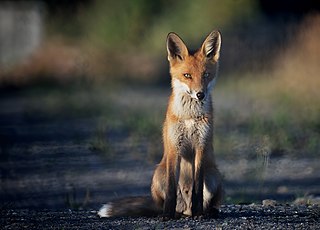Walker is an English, Scottish and German surname.
Robert Taylor is the name of:

John is a common male name in the English language ultimately of Hebrew origin. The English form is from Middle English Ion, Ihon, Jon, Jan (mid-12c.), itself from Old French Jan, Jean, Jehan, from Medieval Latin Johannes, altered form of Late Latin Ioannes, or the Middle English personal name is directly from Medieval Latin, which is from the Greek name Ioannis (Ιωάννης), originally borne by Jews transliterating the Hebrew name Yochanan, the contracted form of the longer name Yehochanan, meaning "YHWH is Gracious" or "YHWH is Merciful". There are numerous forms of the name in different languages; these were formerly often simply translated as "John" in English but are increasingly left in their native forms.
Alasdair is a Scottish Gaelic given name. The name is a Gaelic form of Alexander which has long been a popular name in Scotland. The personal name Alasdair is often Anglicised as Alistair, Alastair, and Alaster.
Moyer is a surname. Notable people with the surname include:
Lamb is a surname, and may refer to
Henderson is a surname of Scottish origin. The name is derived from patronymic form of the name Henry and Hendry, which is a Scottish form of Henry. It means "Son of Hendry" and "Son of Henry". In Scottish Gaelic it is rendered MacEanraig (masculine), and NicEanraig (feminine).
Graham is a surname of Scottish and English origin. It is typically an Anglo-French form of the name of the town of Grantham, in Lincolnshire, England. The settlement is recorded in the 11th century Domesday Book variously as Grantham, Grandham, Granham and Graham. This place name is thought to be derived from the Old English elements grand, possibly meaning "gravel", and ham, meaning "hamlet" the English word given to small settlements of smaller size than villages.
Alexander Norwich Tayler and his sister Helen Agnes Henrietta Tayler were British historical writers, specialising in 17th and 18th century Scottish and English history.
Hetty or Hettie is a female first name, often a diminutive form (hypocorism) of Henrietta.
Adams is a common surname of English and Scottish origin, derived from the given name Adam. Related surnames include Addams and McAdam/MacAdam.
Knight is an English surname.
Milne is a surname of Scottish origin, from the same source as Miller.
Craig is a surname, derived from the Scottish Gaelic creag. The word craig refers to a small, rocky hill in Scottish English.

Kelly is a surname of Irish origin. The name is a partially anglicised version of older Irish names and has numerous origins, most notably from the Ui Maine. In some cases it is derived from toponyms located in Ireland and Great Britain; in other cases it is derived from patronyms in the Irish language.

Wells is an English habitational surname but is possibly also from an old English word for Wales. It normally derives from occupation, location, and topography. The occupational name derives from the person responsible for a village's spring. The locational name derives from the pre-7th century "wælla" ("spring"). The topographical name derives from living near a spring. The oldest public record is found in 1177 in the county of Norfolk. Variations of Wells include Well, Welman, Welles, Wellman and Wellsman. At the time of the British Census of 1881, its relative frequency was highest in Berkshire, followed by Leicestershire, Oxfordshire, Kinross-shire, Huntingdonshire, Kent, Sussex, Lincolnshire, Dumfriesshire and Bedfordshire.
Norman is both a surname and a given name. The surname has multiple origins including English, Irish, Scottish, German, French, Norwegian, Ashkenazi Jewish, and Jewish American. The given name Norman is mostly of English origin, though in some cases it can be an Anglicised form of a Scottish Gaelic personal name.
Chapman is an English surname derived from the Old English occupational name céapmann "marketman, monger, merchant", from the verb céapan, cypan "to buy or sell" and the noun form ceap "barter, business, purchase." Alternate spellings include Caepmon, Cepeman, Chepmon, Cypman(n), and Shapman.

Fox is a surname originating in England and Ireland. The derivation is from the Middle English "fox", itself coming from the Old English pre 7th century "fox". The surname first appears on record in the latter part of the 13th century, with the first recorded spelling in 1273 to be that of John Fox in the "Hundred Rolls of Yorkshire", England. In Ireland, Fox is mainly a translation of the Old Gaelic "Mac a'tSionnaigh".
Dexter is a surname, and a masculine given name. Notable people with the name include:




